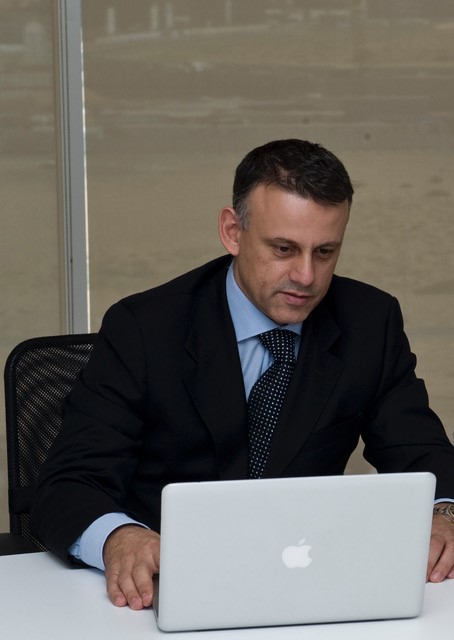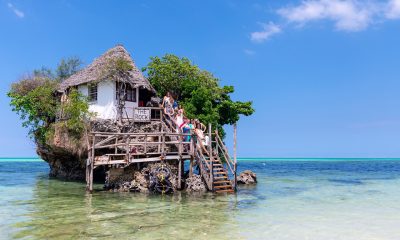Europe
Democracy and the Discrimination in Moldova
 |
| Picture taken by Andy Stoll (about the picture: Pro Democracy Protests on July 2007 in HongKong) |
Written by Sabina Strîmbovschi, Geopolitics.ro
For many of us, democracy embodies the political system that brings stability and prosperity to the nation-state and fulfillment to its citizens. It’s the form of government which guarantees the separation of powers, national sovereignty, equality of all before the law, as well as the possibility to act as their own volition. Far from being considered an infallible political system, Winston Churchill argued that ‘democracy is a bad political system, but the best mankind has yet invented’.
The reason why the UN representatives didn’t remain indifferent lies in the fact that the objectives of the organization are based on concepts that, as a priority, promote the fundamental human rights and, where appropriate, seek to resolve issues of discrimination, homophobia, xenophobia…, and this situation is currently present in the Moldovan society. Following the events, on February 10, 2012 a program called ‘For unity in action: The UN-Moldova Partnership’ has been signed for the period of 2013-2017. Through this program of cooperation worth $ 217 million, are to be supported and developed priority areas for the state’s prosperity, where democratic governance, justice, equality and human rights occupy a prominent place. [3]
Important to remember, in this regard, is the remark of the UN High Commissioner for Human Rights, Navi Pillay, who said in a meeting of the senior UN Officials that ‘no personal opinion or religious belief, no matter how deep or widespread, can justify depriving a person of its rights’ [4] And here i’m referring to the aversion of the Metropolitan Church of Moldova, who is outraged by the requests made by the UN to adopt anti-discrimination law. Moreover, Bishop Vladimir believes that the acceptance and integration of these minorities would lead to the ruin and weaken of the Orthodox faith. [5] It is a tough battle but the recommendations of international institutions is pressing more and more on the Government to reaffirm its commitment to the human rights and take proactive measures to ensure diversity and equal dignity to all. This project will be completed and implemented as soon as possible, said the Minister of Foreign Affairs and European Integration of Moldova, Iurie Leancă, [6] taking into account the fact that the anti-discrimination law is an essential criterion for Moldova to be accepted in the European Economic Area and to enjoy other significant benefits worldwide.
The main obstacles in adopting this low come from the dominant position of the Orthodox Church and the misinformed people, who built their defensive attitude towards LGBT groups based on prejudice and not on their own experience. Many argue that sexual orientation is a disease that lies from a mental or emotional disorder and this can be changed even by psychiatric treatment. Furthermore, they support the idea that access to accurate information about homosexuality and living together with such people could also affect our sexual orientation. They’re unfounded stereotypes which need to be destroyed by a constructive information campaign of the society, where the misconceptions that lead both homophobic activists and the Orthodox Church of Moldova to gain new dimensions, worthy and true for a democratic state.
I conclude this article with the perfect words of Mahatma Gandhi, who believes that ‘through democracy, new opportunities are given both to the weakest and to the strongest’ and in a truly democratic state there is no room for discrimination.
____________________________________________________________________________
References:
1. Gonţa, Valeriu Gay în Moldova: Societatea noastră nu este gata să accepte diferite tipuri de dragoste, 16.03.2012, found at http://social.moldova.org/news/gay-in-moldova-societatea-noastra-nu-este-gata-sa-accepte-diferite-tipuri-de-dragoste-229090-rom.html
2. ONU: Guvernul trebuie să-şi asume angajamentul pentru diversitate, 12.03.2012, found at http://discriminare.md/eveniment/onu-guvernul-trebuie-sa-si-asume-angajamentul-pentru-diversitate/
3. Naţiunile Unite şi Guvernul Republicii Moldova au semnat un nou program de cooperare, found at http://www.un.md/news_room/pr/2012/undaf/index_ro.shtml
4. Organizaţia Naţiunilor Unite susţine drepturile persoanelor LGBT, 09.03.2012, found at http://www.darkq.net/stiri/organizatia-natiunilor-unite-sustine-drepturile-persoanelor-lgbt/
5. Biserica ortodoxă simte că pierde teren, 13.03.2012, found at http://discriminare.md/discriminarea-in-moldova/biserica-ortodoxa-simte-ca-pierde-teren/
Europe
Barcelona and Athens: cities that will leave an everlasting impression

Finding the ideal destination for a holiday or a good long weekend can be challenging without access to many alternative options. Luckily, there are cities that need no introduction to know that they hold the solution; such is the case with Barcelona, in Spain, and Athens, in Greece, which you should always have at the top of your list of potential places to visit.
Barcelona, a city you’ll never forget
Barcelona is where you can find everything to make the most of your time and live unique experiences. Just go online and search for a city guide of Barcelona to review everything and start planning your trip.
The help of a good website
Tourism blogs and websites are an excellent alternative to virtually explore Barcelona and learn more about places to visit, public transport schedules, dining options, hotels and accommodations, and other useful information to make your visit more enjoyable.
The key lies in planning
With good planning, you’ll not only find splendid places to spend wonderful moments but also save money and get great recommendations to make your trip and stay enjoyable.
Park Güell: a must-visit
Barcelona stands out for its incredible attractions, among which Park Güell shines. Just read more about this interesting place to fall in love with it and make this visit mandatory.
What is Park Güell?
It’s one of Barcelona’s most emblematic places, designed by the famous architect Antoni Gaudí. Originally conceived as a housing development and later converted into a public park.
Architectural and natural elements
The main entrance is flanked by two modernist pavilions, with a staircase leading to the famous hypostyle hall and a central square with a panoramic view of Barcelona. Additionally, it features over 17 hectares of gardens, viaducts, and winding paths, integrating architecture with the natural landscape.
Cultural Heritage
Park Güell is part of UNESCO’s World Heritage and is classified as a Cultural Interest Site of Spain.
Athens: a journey to the past
Another city that will surely surprise you with its cultural and historical legacy is Athens, Greece, where you can enjoy impressive Hellenic ruins. It’s advisable to visit an Athens travel guide on the internet before you go to learn about everything and better organise your visit.
Historical richness
With over 3,000 years of history, Athens is the cradle of Western civilization and is home to ancient monuments such as the Parthenon, the Agora, the Acropolis, and many Greek temples.
Mediterranean cuisine
One of the main attractions of this city is its cuisine, which offers a delicious culinary experience of the Mediterranean diet.
Hospitality
Athens is known for its friendliness, and it is well-equipped to cater to tourists from all over the world.
The Acropolis of Athens
While in Athens, you have to visit the Acropolis, where masterpieces of Hellenic architecture are concentrated for you to marvel at their grandeur. Keep in mind that it is a highly visited site, so you should book now to secure access for your visit.
Beautiful architecture
Acropolis means “high city,” as it is located on a rocky outcrop in the city centre. Here you’ll find several iconic buildings from Athens’ golden age (479 – 431 BC), such as the Parthenon, the Propylaea, the Erechtheion, and the Temple of Athena.
Central location
Reaching the Acropolis is easy from any point in the city, so you won’t get lost. From there, you’ll have panoramic views of the city spreading out at your feet.
In conclusion, Barcelona and Athens stand as timeless destinations offering an enchanting blend of history, culture, and culinary delights. Whether exploring the iconic landmarks of Barcelona or delving into the rich historical tapestry of Athens, these cities promise unforgettable experiences for travellers seeking adventure and discovery. With careful planning and the aid of modern resources, embarking on a journey to these vibrant metropolises ensures a truly memorable escape.
Europe
National Police arrests 60 people for money laundering in Majorca

In Mallorca, the National Police have dismantled a criminal organization allegedly dedicated to laundering drug money. According to preliminary investigations, those involved are alleged to have laundered more than one million euros over the last year.
At the moment, the authorities have arrested a total of 60 people for the alleged crimes of money laundering and false documentation. Although investigations are still ongoing, leading Spanish criminal lawyers have pointed to the possibility of an increase in the amount of money laundered.
In addition to this, specialists in Criminal Law and Financial Crimes such as Luis Chabaneix have pointed out that during the next few days the number of arrests could increase, both in Madrid and in Mallorca. It should be noted that of the 60 arrested, 55 were arrested on the island and the other five in the city of Madrid on Sunday, May 16.
Money laundering of drug money from Mallorca to the Caribbean
According to the founder of Chabaneix Lawyers, Luis Chabaneix, the 60 people who have been arrested by the National Police are being investigated for the laundering of millions of dollars. It is presumed that more than one million Euros from drug trafficking activities have been sent to Latin American countries such as the Dominican Republic and Cuba, and even shipments to the United States have been registered.
In these countries, the money diverted by the criminal association has been used for the purchase of real estate and vehicles. For this reason, the National Police is in permanent collaboration with the North American, Cuban and Dominican authorities in order to dismantle the activities of this group in the different countries.
Likewise, among the main information provided by the authorities, it should be noted that more than 400,000 Euros in cash were seized from the hands of those arrested in Mallorca. Similarly, the police searches carried out on the island led to the seizure of multiple luxury items and accessories, a total of three kilos of cocaine and approximately 60 kilograms of cutting substances.
Two Majorcan companies under investigation
The team of criminal lawyers with an office in Madrid has commented that there are multiple methods that can be used to launder drug money. In the particular case of the criminal organization headed by a nationalized citizen of Cuban origin, one of the methods used to divert the money was international bank transfers.
For this purpose, the use of linked bank accounts of certain front men was a fundamental element. In addition, the case includes investigations of split money transfers through call shops.
On the other hand, through an official statement, the National Police informed that two Majorcan companies have been linked to the ongoing investigation. The reason for this is the issuing of fraudulent invoices for a value close to 200,000 euros.
Through these methods, the criminal organization has managed to launder capital inside and outside the country, legalizing large sums of money allegedly originating from drug trafficking. Undoubtedly, the arrest of the 60 people involved, including the leader of the organization, is a serious blow to the laundering of drug money in Spain.
Economy
Seasif’s Franco Favilla discusses the post-Covid economy and the price of gold

Although the Covid-19 pandemic isn’t over yet, there has been much discussion on the idea of a “post-Covid” economy, especially with the beginning of vaccination efforts in some countries. With markets throughout the world suffering the economic effects of the virus, experts have been looking towards the future –– and one of the topics that often comes up is the price of gold.
In August, the price of gold exceeded US$ 2,000 an ounce for the first time, driven by multiple factors. However, in November, advancements in Covid-19 vaccines led to a decrease in this trend, a result of the turbulent period we are going through.
“Regardless of the market volatility and the price changes that could occur over a given period of time, the fundamental fact is that the price of gold over the course of 2020 has reached an all-time high, and this, in my opinion, is very good news for the world economy,” explains Franco Favilla, founder and CEO of Seasif, a multinational company active in the extraction and trading of gold and oil.
According to Mr. Favilla, the main problem of the pre-Covid economy was the completely arbitrary nature of international finance. At one time, a ton of gold corresponded to a ton of currency, but since the 1980s, and at an impressive rate since 2000, the gap has widened enormously, so much so that today the relationship between the world’s currencies and gold is enormously unbalanced.
Total gold reserves around the world cover only 30% of currencies. This means there is nothing to cover and guarantee the value of money. In short, money has turned into a pure convention, a pure agreement between parties acting outside the market. Gold, on the contrary, guarantees democracy, because it protects savers and the market, offering an objective value for parameterizing every transaction.
“My hope, therefore, is that the crisis caused by Covid-19 will help to change finance, making it less ‘phantom’ and more linked to an objective dimension, based on gold, with obvious advantages for the real economy. Gold protects consumers, the most important component in any economic system: if you don’t have a market made up of consumers with a certain level of wealth, how can you sell? To whom? Consumer protection must come first, and gold is one of the main ways of protecting them,” states the CEO of Seasif.
Sustainability has also been at the forefront in discussions about the post-Covid world, as countries look towards establishing a more resilient global economy, one able to better withstand such events in the future –– and “green gold” may well be a part of that future. Green gold, in a sense, can be considered the “gold of the future” due to its ethical and sustainable extraction process. Seasif produces green gold, with a department entirely dedicated to green, and has allocated economic incentives to its continued production.
Even as 2020 draws to a close, the future may still look uncertain. But for those searching for greater security, gold may be one of the few certainties left.
-

 Technology12 months ago
Technology12 months agoHow Virtual Fly Elevates the World of Flight Simulators
-

 Travel12 months ago
Travel12 months agoImmerse Yourself in Nature: Explore Forest Bathing with a New Guidebook
-

 Europe12 months ago
Europe12 months agoBarcelona and Athens: cities that will leave an everlasting impression
-

 Travel9 months ago
Travel9 months agoEnjoy a luxury holiday in Zanzibar
-

 Health12 months ago
Health12 months agoExperience in clinical quality: What is it, and why is it important?
-

 Culture and Lifestyle8 months ago
Culture and Lifestyle8 months agoDo you want to surprise a special someone?
-

 Business8 months ago
Business8 months agoServiceNow Development Consultancy: Business Process Automation as Disruptive Technology
-

 Environment8 months ago
Environment8 months agoThe Future of Fashion: The Rise of Eco-Conscious Brands in the Luxury Market






